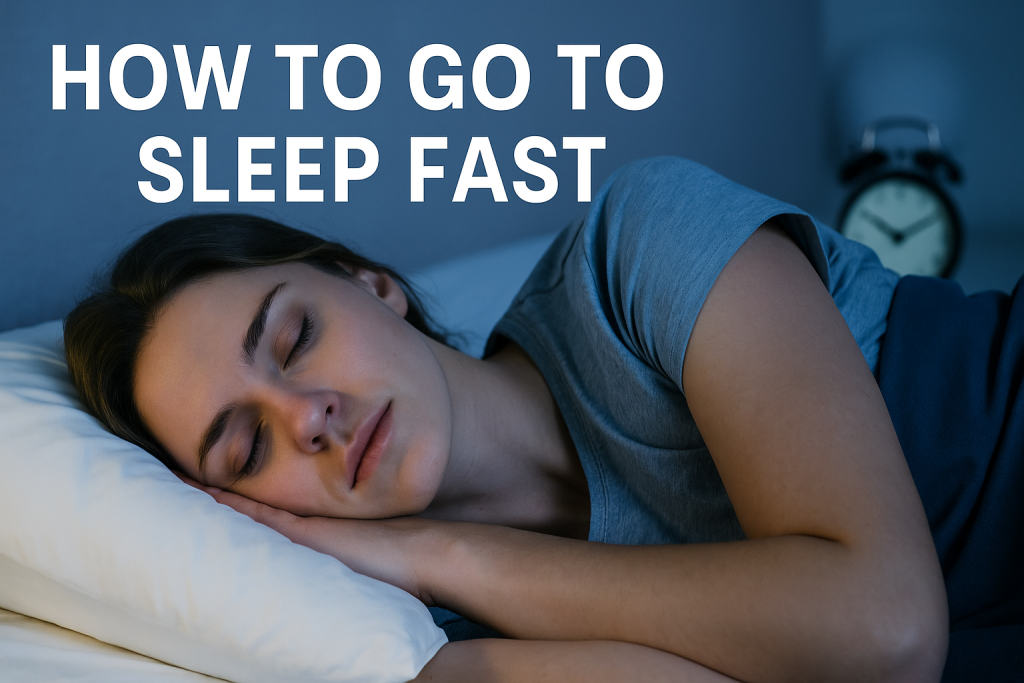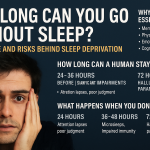Trouble falling asleep can leave you feeling frustrated and exhausted. If you’re one of the millions struggling with this issue, you’re not alone. Fortunately, there are science-backed methods and simple lifestyle changes you can make to help you go to sleep fast and wake up refreshed. This comprehensive guide will walk you through the most effective strategies to fall asleep quickly and improve the quality of your rest.
Why Can’t I Fall Asleep Fast?
Understanding the root causes of your sleep difficulties is the first step toward finding a solution. Many factors can contribute to delayed sleep onset, including:
- Stress and anxiety: Racing thoughts can keep your mind active at bedtime.
- Poor sleep environment: Noise, light, or an uncomfortable bed can delay sleep.
- Bad sleep habits: Irregular bedtimes, screen use before bed, and caffeine intake can disrupt your sleep cycle.
- Medical conditions: Disorders like insomnia or restless legs syndrome may hinder your ability to fall asleep.
How to Go to Sleep Fast: 10 Effective Strategies
Below are proven techniques you can try tonight to help you fall asleep faster and sleep more soundly.
1. Create a Sleep-Inducing Environment
Your bedroom should be a sanctuary dedicated to rest. Here’s how you can optimize your sleep environment:
- Keep it cool: The ideal temperature for sleep is between 60-67°F (15-19°C).
- Block out noise: Use earplugs, white noise machines, or fans to drown out disruptive sounds.
- Dim the lights: Use blackout curtains and avoid bright lights before bedtime.
- Invest in comfort: A supportive mattress and cozy bedding can make all the difference.
2. Stick to a Consistent Sleep Schedule
Going to bed and waking up at the same time every day helps regulate your body’s internal clock. Even on weekends, try to keep your sleep and wake times consistent.
3. Practice Relaxation Techniques
Calming your mind is crucial for quick sleep. Try these relaxation methods:
- Deep breathing: Try the 4-7-8 technique: inhale for 4 seconds, hold for 7, exhale for 8.
- Progressive muscle relaxation: Tense and relax each muscle group starting from your toes to your head.
- Meditation: Guided meditations or mindfulness exercises can quiet your mind.
- Visualization: Picture a peaceful place or scenario to distract yourself from worries.
4. Limit Screen Time Before Bed
Devices like smartphones, tablets, and TVs emit blue light, which suppresses melatonin production—the hormone that regulates sleep. Aim to power down electronics at least one hour before bedtime.
5. Watch Your Diet and Caffeine Intake
Avoid heavy meals, caffeine, and alcohol close to bedtime. These can cause indigestion, disrupt your sleep cycle, or make it harder to fall asleep.
- Caffeine: Stop consuming caffeinated drinks at least 6 hours before bed.
- Alcohol: While it can make you sleepy initially, it disrupts restorative sleep stages.
- Heavy, spicy meals: These can cause discomfort or heartburn at night.
6. Develop a Soothing Bedtime Routine
Establish a consistent pre-sleep routine to signal your body that it’s time for rest. Consider including activities such as:
- Taking a warm bath or shower
- Reading a calming book (not an e-book)
- Listening to soft music
- Stretching or gentle yoga
7. Try the Military Method
The military method is a technique developed for U.S. Navy pilots to help them fall asleep in challenging environments. Here’s how it works:
- Relax your entire face, including the muscles around your eyes, jaw, and tongue.
- Drop your shoulders and hands to your sides.
- Exhale and relax your chest, then your legs, thighs, and calves.
- Clear your mind for 10 seconds, then try repeating the phrase “don’t think” for 10 seconds more.
- This method reportedly works for most people after about six weeks of consistent practice.
8. Use the Power of Aromatherapy
Lavender and chamomile essential oils are popular for their calming effects. Diffuse oils or use a pillow spray to help you unwind and promote faster sleep onset.
9. Get Regular Physical Activity
Exercise can help you fall asleep faster—just avoid vigorous workouts close to bedtime. Activities like walking, swimming, or yoga earlier in the day improve overall sleep quality.
10. Manage Stress and Anxiety
Unmanaged stress can keep you awake at night. Journaling, talking to a friend, or seeking professional support can help you process your thoughts and ease nighttime anxiety.
What If You Still Can’t Fall Asleep Fast?
If you’ve tried these tips for several weeks without improvement, you may be suffering from a sleep disorder like insomnia or sleep apnea. In that case, consult a healthcare provider or sleep specialist to address possible underlying issues.
FAQs: How to Go to Sleep Fast
How long should it take to fall asleep?
The average person falls asleep within 10-20 minutes of going to bed. If it regularly takes you longer, try adjusting your sleep routine and environment.
Is it bad to take sleep medication?
While over-the-counter sleep aids and prescription medications can help on occasion, they are not recommended for long-term use without medical advice. It’s best to focus on natural sleep strategies first.
Can napping affect my ability to fall asleep at night?
Long naps or napping late in the afternoon can make it harder to fall asleep at bedtime. Limit naps to 20-30 minutes and avoid them after 3 p.m.
Conclusion: The Path to Better, Faster Sleep
Learning how to go to sleep fast is about more than just turning off the lights. By creating a restful environment, establishing healthy routines, and managing stress, you can train your body and mind to fall asleep quickly and enjoy more restorative rest. Start implementing these tips tonight, and you’ll be on your way to better sleep and brighter mornings.


